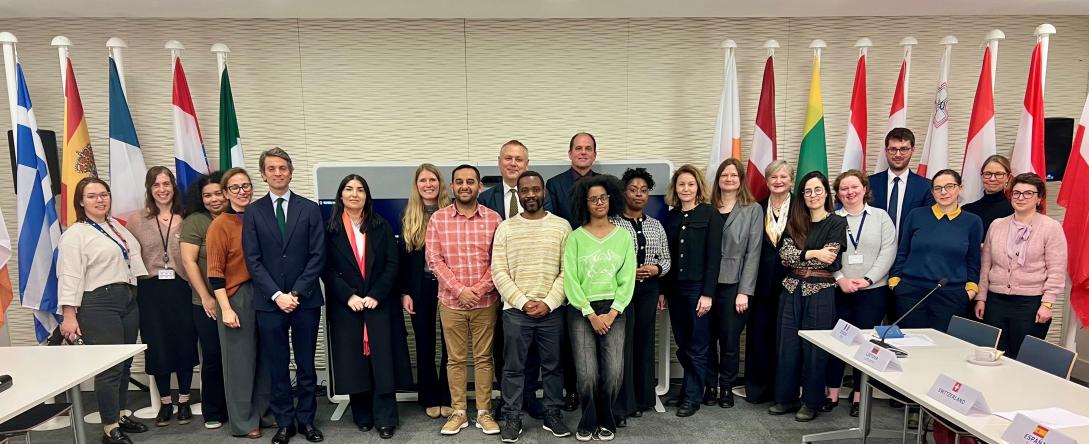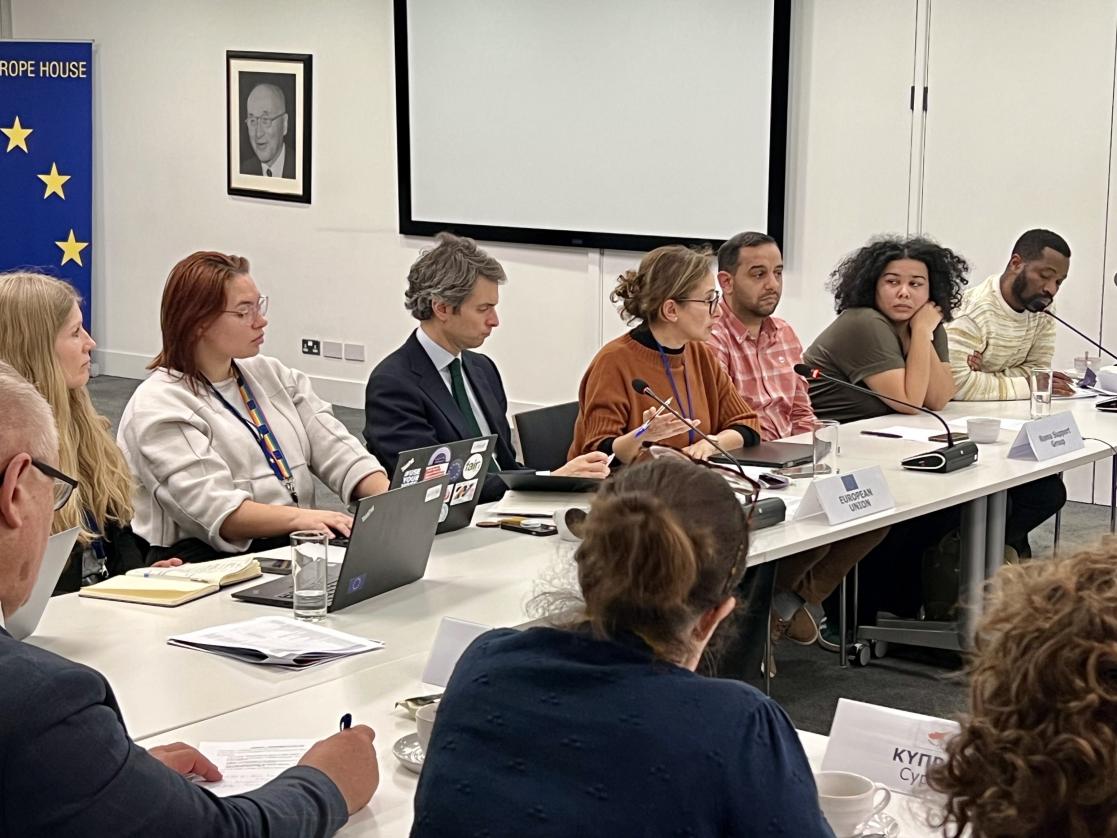New EUROMEC co-chair puts the spotlight on European Romas in the UK

Meeting at Europe House, Mihai Calin Bica, campaigning and policy worker for the Roma Support Group and the new co-chair of EUROMEC said: “Ethnic minority EU citizens are facing distinct vulnerabilities. The Roma Support Group, with its deep understanding of the issues affecting Roma and other minority communities, is bringing stakeholders together to amplify the voices of those most at risk and identify best practices.”

EU Del
Today's gathering also brought together community leaders, EU Member States and experts to share experiences, identify challenges, and explore solutions to the unique difficulties faced by these communities culminated with a discussion on 2025 priorities for Roma Support Group.
As he passed over the co-chairmanship of EUROMEC to Mr Calin Bica, Aké Achi, CEO of Black Europeans said: “I'm proud that we have played a part in shedding light on the critical experiences of minority ethnic EU citizens and to have helped create a landmark platform for our community’s voice to be heard”.
The Roma community in the UK
According to the House of Commons Library briefing, the Roma population in the UK could be anywhere between 100,000 – 500,000. Estimating the exact number of Roma people in the UK is challenging due to various factors, including lack of official data, underreporting (many Roma do not identify themselves as Roma or may not participate in surveys due to historical mistrust or fear of persecution) as well as mobility (the Roma community is often mobile, with individuals and families moving between countries, making it difficult to track their numbers).
The importance of Data
Collecting reliable data is key to be able to identify and address inequalities and to inform policy-making, ensuring that resources are targeted effectively. In 2024, the EU Delegation provided financial support to the charity Gyros who worked with Cambridge University to undertake research among vulnerable groups, including Roma individuals, who have navigated the EU Settlement Scheme application process.
The findings, presented today, revealed the distinct set of problems that disproportionately affect this group and underscored the need for targeted support and intervention to address the specific issues that hinder the well-being and integration of ethnic minority individuals.
Future research
The EU Delegation is providing further funding to support additional research among ethnic minority EU citizens residing in the UK from University of Sheffield and Migration Observatory. This new research aims to estimate the size of this cohort and gain a deeper understanding of the specific challenges they encounter. The results of this research will be made publicly available later this year.
The European External Action Service (EEAS) is committed to embedding diversity and inclusion into every aspect of its work, from internal operations to external initiatives. EUROMEC is a key component of this effort, leveraging strategic partnerships, data-driven insights, and collaborative approaches to build a more inclusive and equitable environment for all citizens.
Pedro Serrano, EU Ambassador to the UK, commented on the importance of the initiative: "Through EUROMEC, we are committed to delivering a bespoke support system for EU citizens from ethnic minority backgrounds, addressing their unique concerns and needs. The Roma Support Group, with its extensive expertise will play a crucial role in elevating the voices of those most at risk and ensuring their rights are protected in line with the Withdrawal Agreement.”





